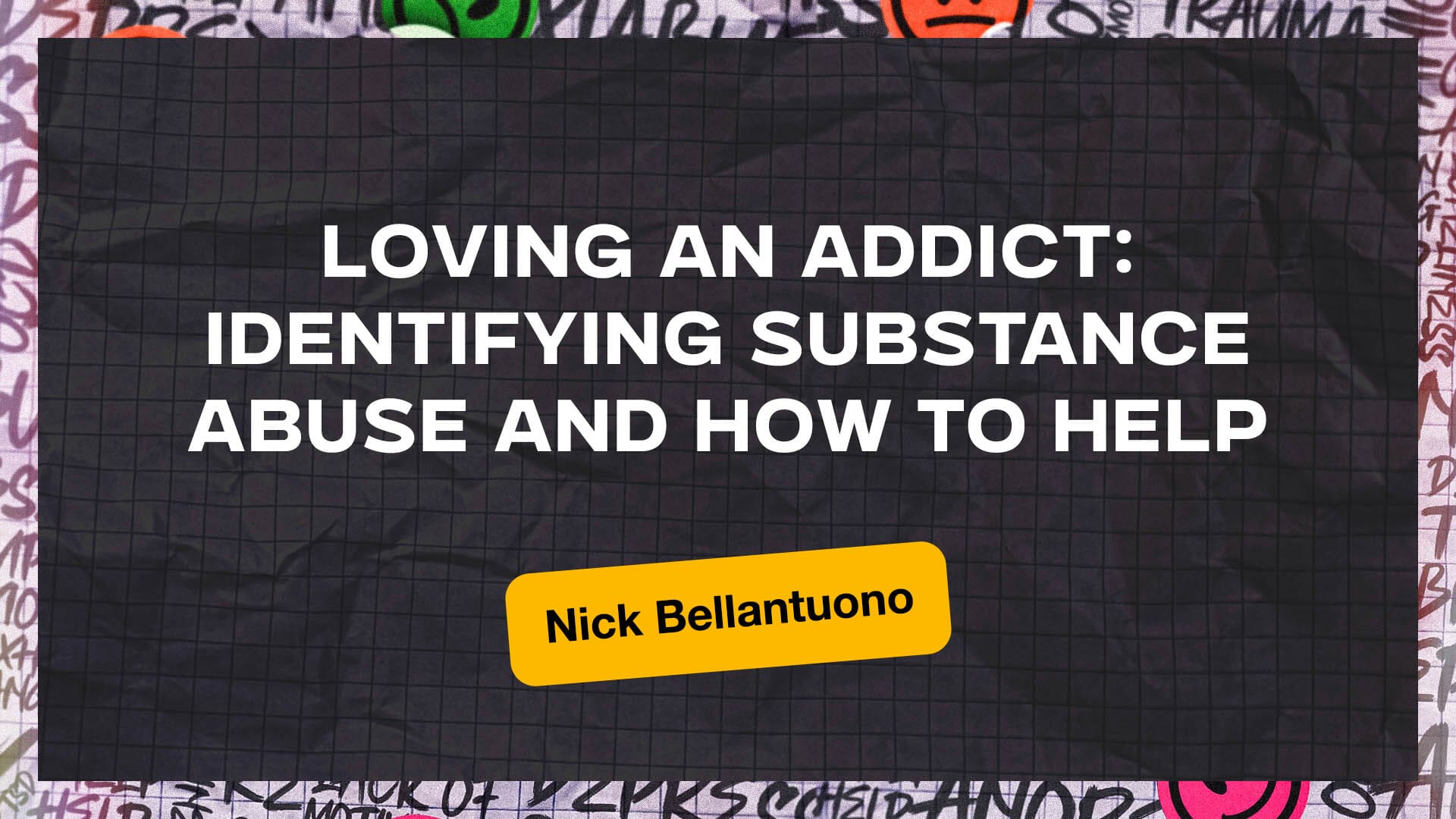Loving An Addict: Identifying Substance Abuse and How To Help.
Nick Bellantuono, CADC, LCPC | August 4, 2022

This article was written by Certified Alcohol and Drug Counselor (CADC), Nick Bellantuono, LCPC.
If you’re the friend or family member of someone struggling with substance abuse and addiction; you can have conflicting feelings. It’s natural to think, “I love this person and want them to get help,” while at the same time thinking, “but they are causing destruction to themselves and our relationship”. While we can feel so helpless against this relentless disease, steps are available to create positive, lasting, change.
One of the first steps to helping a loved one struggling with substance abuse is to educate yourself. Addiction can take many forms, but there are some general characteristics.
Identifying Substance Abuse or Addiction.
Addiction is the engagement in a substance or behavior that spirals out of control.
Over time, greater intensity of use creates a higher tolerance, meaning more of the behavior or substance is needed to maintain normal function. The addict’s ability to keep up with a higher tolerance becomes more difficult and can lead to an array of withdrawal symptoms.
Some areas of withdrawal symptoms include:
- Issues with physical health.
- Struggles with emotional regulation.
- An erratic mood.
- Odd behavior.
Some other signs of an addiction issue include:
- Failed attempts to stop or cut back on substance or behavior.
- Planning events around the substance or behavior.
- Self-induced professional challenges.
- Unexplained financial issues.
- Overall loss of control in everyday functioning.
Once you sense or have identified that addiction is affecting your loved one or family member, it is helpful to share your perspective. Be respectful, but honest and assertive. Use “I” statements to share your experience of how the addiction has affected you.
How Can I Help Someone With Addiction Issues?
Another important aspect is understanding that addiction does not operate in a vacuum; it requires unhealthy patterns to grow and infect the people and circumstances around it. Some helpful steps can be to learn about and examine your own co-dependent behavior (doing for others what they should do for themselves). Continuously learn about your own (possible) enabling tendencies or behaviors. Ask yourself. “Am I enabling my loved one’s addiction by either allowing things that support their addiction or looking the other way?” If so, what can you do to help support your loved one in his/her recovery instead?
Also, build your own recovery community! Join a support group such as Al-Anon (AA), a Christian small group, or see an addiction counselor (yes, it can be helpful to see an addiction counselor for yourself as part of your supporting role).
It sounds cliché, but it’s true: you can’t control the behavior of someone struggling with addiction, but you can set up your own recovery system. You can do your part to change unhealthy patterns that allow the addiction to strengthen its grasp on your relationship or family. Authors Henry Cloud, Ph.D., and Melody Beattie both have helpful books and principles on ways to set relational boundaries. Dr. Cloud also has a podcast and online educational courses at boundaries.me.
Making a change to a dynamic affected by addiction is, most likely, going to be an emotional roller coaster. Lapse and relapse are often part of the process. It is important to stay connected to key people in your recovery community. For recovery to work, each person within the addiction dynamic has a role to play and their own accountability.
For the person struggling with addiction, accountability can occur through a sponsor, a therapist, or AA group. And as mentioned above, the person affected by a loved one’s addiction may find necessary accountability and support from AA, addiction recovery groups such as Recover at Willow Creek, or their own therapist.
Remember, the person struggling with addiction is not the problem; addiction and isolation are the problems. Change is possible, but each person needs to engage with, and commit to, their role in the recovery process.
Addiction and substance abuse recovery can provide the opportunity to increase self-awareness, clarify values, and learn conflict management skills to create healing, hope, and a stronger relationship or family dynamic.
Check out our recovery support group, RECOVER, at Willow Creek.
See also our helpful guide, How To Find A Counselor and What To Expect.
For more practical ways to deal with mental health issues, and stories of others who have been there too, go here for our full list of resources.
